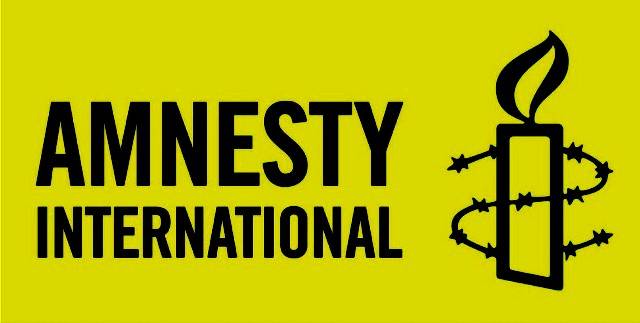Editorial
Against Amnesty For Repentant Terrorists

Last Wednesday, the Federal Government made spirited efforts to counter opposition
against the move to grant repentant Boko Haram terrorists amnesty.
Many Nigerians, including victims of insurgency in the North East, have kicked against the de-radicalisation and rehabilitation of repentant Boko Haram members, saying the programme was a way of rewarding those who had shed innocent blood.
But the Federal Government, in a statement by the Senior Special Assistant to the President on Media and Publicity, Garba Shehu, said the programme followed “an established example of countries with similar experiences”.
It said the programme enjoyed the support of international organisations such as European Union and the United Nations.
According to the Presidency, the former combatants had repented and were better citizens, imbued with genuine nationalism; therefore, the society had the duty of accepting them.
The presidential aide also faulted claims that the current regime was absorbing repentant Boko Haram terrorists into the military through the programme, describing such claims as fake news.
The statement read, “None of the 601 former Boko Haram members who voluntarily laid down their arms, and have recently graduated from the Federal Government’s de-radicalisation and rehabilitation programme, is going into the military. This is the fourth of such graduation of repentant Boko Haram fighters and not one of such graduates has been absorbed into the military.
“The public needs to be reassured that the de-radicalisation, rehabilitation and reintegration of violent extremists of the Buhari administration code named ‘Operation Safe Corridor ,’ follows an established example from countries with similar experiences, and is supported academically and materially by the European Union and the United Nations”.
Hard as the Federal Government tries to justify the planned amnesty programme for Boko Haram terrorists, the reasons adduced for it fall flat on the face. Many Nigerians, including The Tide, find it extremely difficult to understand why the government would reward killers with freedom and funds. Granting the so-called repentant terrorists amnesty would amount to a great injustice against the victims of insurgency who have borne the brunt of their mindless bloodletting.
While we agree that there is an urgent need for peace in the North East, because the region is falling behind in terms of economic progress and development, we are of the opinion that the failure to punish perpetrators of crime deforms the authority of law and would encourage impunity which is fast becoming a culture in Nigeria. It will also undermine the legitimacy of the government and breed cynicism towards civilian institutions.
In addition, we believe that it is the prosecution of Boko Haram members, and not their reintegration, that will expose the truth about their violent crimes and terrorist activities.
So, rather than spending public fund to rehabilitate blood thirsty monsters, we insist that their trials and prosecutions could inspire Nigeria to reassert the fundamental principles of respect for the rule of law, freedom of religion and the inherent dignity for human lives.
Besides, we are yet to be convinced that the so-called repentant religious extremists would not go back to pick up arms against the people after their reintegration.
We recall that in April 2013, former President Goodluck Jonathan set up a committee to look into the possibility of granting an amnesty to Boko Haram militants, but the sectarian group rejected the offer. This confirms that the sect is made up of hard boiled, ideologically hardened terrorists that may never be persuaded by rehabilitation and reintegration.
We are not also persuaded by the argument that a similar programme offered the ex-militants of the Niger Delta by the administration of late President Umar Yar’Adua restored peace in the region. This is because the insurrection that culminated in attacks against oil installations by militants of the Movement for the Emancipation of the Niger Delta (MEND) was anchored on growing poverty, unemployment, and environmental degradation in the Niger Delta. Boko Haram terrorists do not have such reasonable justifications for their bloodletting actions.
All indications, including their modus operandi, clearly show that unlike the Niger Delta agitators who formed a vanguard against further degradation and neglect of their region, Boko Haram terrorists are mere blood thirsty goons that kill innocent people without reasons.
Granting amnesty to such mindless monsters would not only defeat one of the key programmes of the Buhari administration, it will also raise the fear of social injustice in Nigeria; which is that the victims of violence are neglected while perpetrators of crimes are rewarded.
Again, rewarding the rebels financially for surrendering their arms is likely to attract other young people to join the sect.
Meanwhile, we observe that Nigeria currently lacks the institutional structures for rehabilitating, reabsorbing and reintegrating terrorists in its midst. In fact, one of the critical points for the failure of the Niger Delta amnesty was the inadequate rehabilitation programme designed to give the ex-militants social and job skills.
We, therefore, urge the Federal Government to perish the idea of granting amnesty in whatever disguise to Boko Haram insurgents. We advise the government to deploy the resources meant to rehabilitate the insurgents into total decimation of the sect. This should be the major priority of the Buhari government, and not amnesty.
Editorial
Beginning A New Dawn At RSNC

Editorial
Sustaining OBALGA’s Ban On Street Trading

Editorial
AFCON ’25: Bravo, Super Eagles, But…


